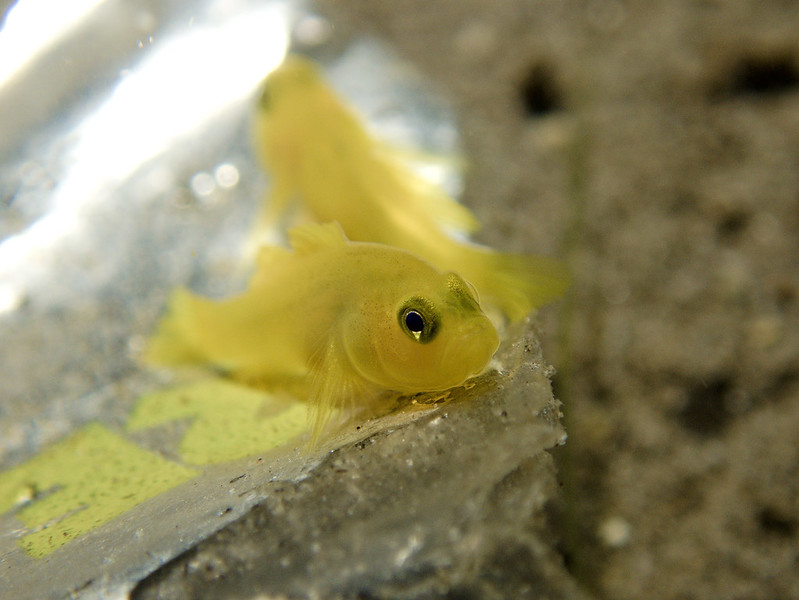Lubricogobius and Ocean Plastic
I just came across a nice article in Reef Builders Magazine about the bright yellow goby Lubricogobius tunicatus:
Lubricogobius tunicatus Is A Wonderful New Species Of Slippery Goby
Two things strike me here: One is that I always assumed that the Lubricogobius I come across are Lubricogobius exiguus, but as usual the taxonomic situation among these small fishes in complex and tricky.
I then looked over some of my footage and images of Lubricogobius, and I noted a curious pattern. Let’s start with the images. Here a couple of the yellow gobies lives on a piece of plastic in sand in Dauin. The plastic once held the spices which go with these terrible instant noodles, which are a disaster both in terms of culinary value as well as nutrition. But the tiny gobies appreciate their plastic home, and they chose it among the many other options in the area, like rocks or decaying plant parts:
This goby couple is living in the tests of a dead sea urchin:
And there is footage of Lubricogobius on the aforemntioned piece of plastic (the video is linked such that it starts where the Lubricogobius footage starts):
And here I shot a Lubricogobius in a burrow which was initially an invertebrate tube:
They Like Plastic
It seems that Lubricogobius like plastic. The trash which humans deposit in the oceans at alarming rates is generally, rightfully, seen as a very negative thing, BUT this tiny species of goby seems to actually benefit from plastic trash. Of all the instances where I have seen them, in the majority of cases they have lived on pieces of plastic like fast food wrappers, or below discarded textiles like rotting t-shirts or underpants. I believe that it’s natural habitat are the shells of dead invertebrates, like the urchin tests above, but in the minority of encounters I have seen them live in these.
While ocean plastic causes a lot of harm and looks ugly, this one species of tiny fish bizarrely profits from it, and I believe that there could be more Lubricogobius in the ocean now than before the days of massive ocean plastic.
The book which Prof. James Reimer and I am working on is discussing questions like the bizarre benefit of plastic to small, previously very rare fish. We write about how human activity changes the oceans, often in a negative way, but never in a linear way, affecting some species more than others. What we will see in the planet’s oceans in the future will not be emptiness, devoid of life, but life arranged in very different ways.




